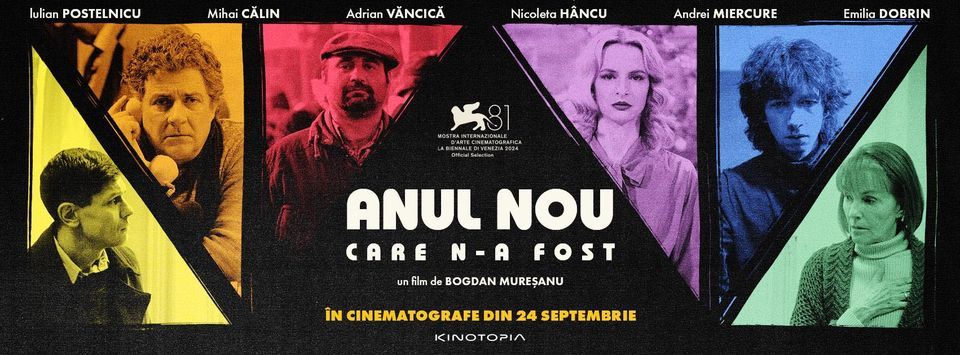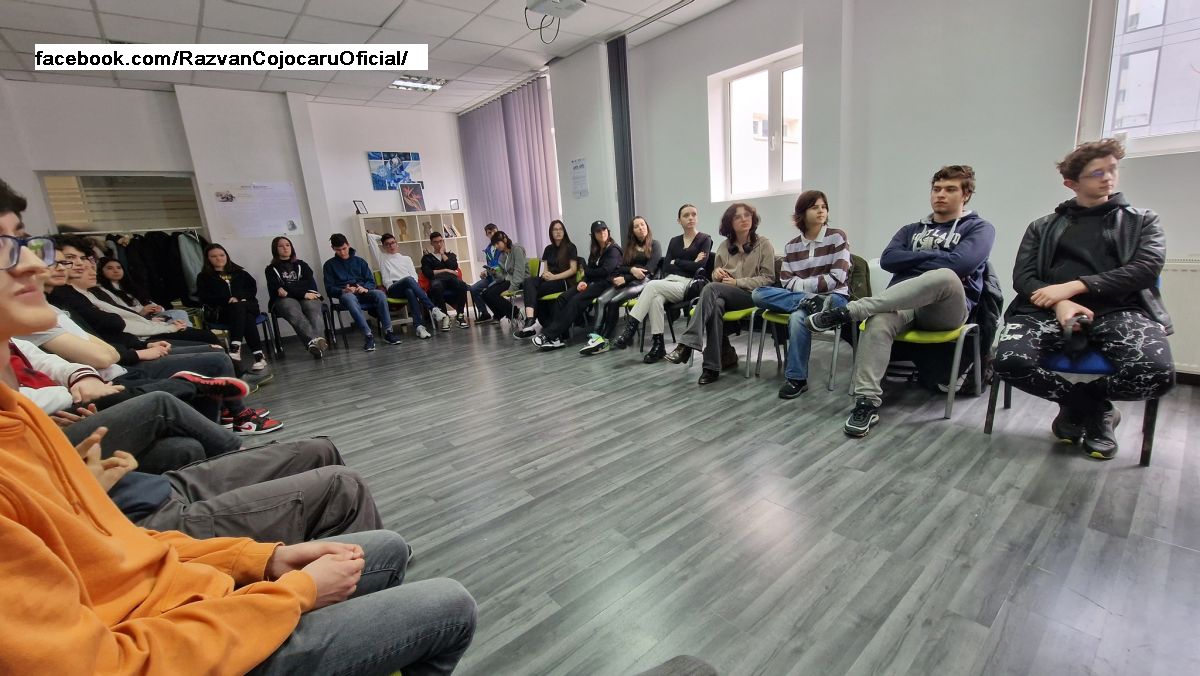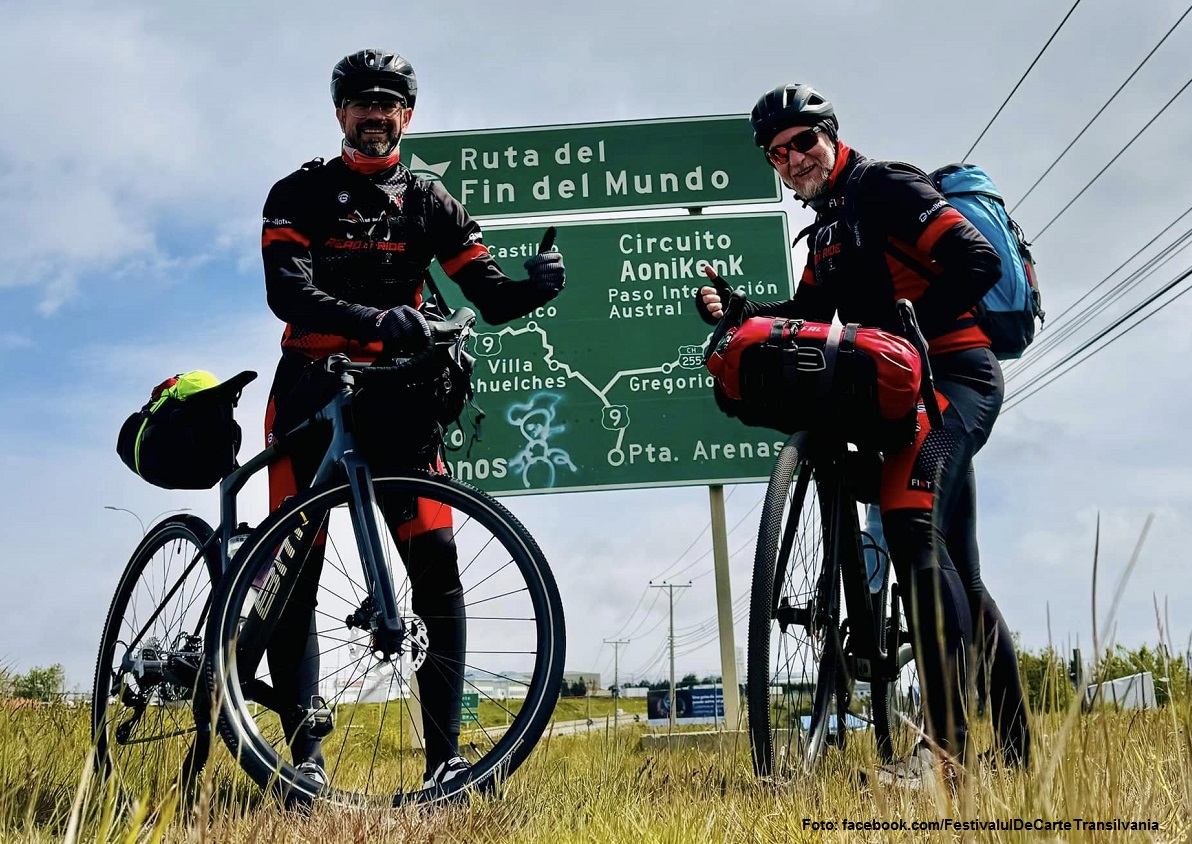The New Year That Never Came
Today we are discussing a movie

Ana-Maria Cononovici, 05.11.2024, 18:14
Today we are discussing a movie. And we chose this theme, because “The New Year That Never Came”, the first feature film of the director and screenwriter Bogdan Mureşanu, registered some remarkable successes in a short time after its release. Thus, in the first weekend after its release, the film occupied the first place at the box office. In the first month after its release in cinemas in Romania, the film already registered 70,000 viewers. Not to mention international and national awards! Or better said, we leave the topic to the specialized RRI columns!
We asked Bogdan Muresanu if he expected the film to be so successful:
“No, nobody can do anything to have success. I mean, I didn’t even ask myself the question of success. I thought that even if I got to do it the way I wanted, and that seemed like a great success, and to have only screened it in front of some friends, it would have been a victory for me, because when I wrote it, it seemed impossible to make. In fact, I spent about six months thinking about whether I can do it and whether it makes sense. I also wrote a “safer” version, as they say, something easier to do, but in the end I decided to choose the hard way! And now I’m glad I did!”
Adrian Cioroianu, professor of history at Bucharest University, told us how he saw the film at one of the Bucharest premieres:
“I have to admit that I found it surprising, as someone who has seen, I think, all, or most movies about the Romanian Revolution! And I didn’t go with high expectations, even though they said it was good! I wasn’t going in with high expectations, but I found it surprising, primarily because of the script and the acting of the actors. The actors, mostly well-known, but whom you would not have expected to see in such a dark comedy. I don’t even know how to say this; although it apparently ends with a happy ending, we know that after the end of the film, there are 1000 wounded and dead. But all in all, I think a new generation was still needed to relate to the event, and I think the defining element of the film is this shift in perspective. We’ve had comedies before, we’ve had heavy films about the December Revolution, but this sequence of destinies and their chaining together I think brought us closer to real life, even if, obviously, the film treats history with the freedom of the artist. There are certain things, unfortunately, that are more pleasant in the film than in reality, or some small mismatches in the setting, but all in all, I think that the freshness of the treatment is what delighted everyone who saw it.”
Bogdan Muresanu told us what the biggest challenges in making the film were: “Because the film takes place in one day and one morning, there were problems with the weather, with the archives, because it wouldn’t snow . On the other hand, we were also dependent on the weather, we couldn’t film at any time. The trees had to have a certain foliage, neither very green nor full of snow, as I said, because that was not the case on the 20th of December. This created a lot of problems for me. Then the reconstitution of spaces that no longer exist, and I’m not talking about apartments here, because that can still be done, but in a working television studio from the 80s, that was an absolutely gigantic challenge for us! Because I said it has to be functional: it had to work, those panels and all that stuff had to work, because we didn’t have the money to shoot separately.”
Those who did not catch those times and whose parents did not share them enough learn from the film how it was, how a tape recorder worked, a television with lamps and cathode ray tubes, but also why you would have run away from that place, risking everything . Information with which the world seems to resonate more and more both nationally and internationally. How is this explained? Here is Bogdan Muresanu:
“It has an international success as great as the national one. Its festival circuit has just started and I think it will keep going like this for 2 years! Tour the world! And where I was, the theaters were always full. It is true that there were also many from the Romanian diaspora there! But otherwise, how do I explain it? I think it’s a bright movie. Every day I receive dozens of messages from viewers and I answer them, or try to answer them, myself and my team. I really enjoy it! This word, therapeutic, and bright, always comes up, which is probably surprising for such a difficult time, which was dark. And I was surprised by this word, bright. Although that ending of the film is liberating, and I remember that the whole of Romania felt that way, and it probably encapsulates, in the narrative of this film, that feeling of liberation that we all experienced that day.”
Professor Adrian Cioroianu explained:
“In the film we see things characteristic of those times, and in a way we all find ourselves. Because inevitably, if you were a student, I’m not talking about actors anymore, but even in school, we recited poems about the [Communist] Party, sometimes about the general secretary, or those who made up the army, swore with their hand on the tricolor to defend the homeland under the orders of the supreme commander, etc. So there is this category of audience that can be found in the film, but surprisingly they are young people, who were not born then, and I find that gratifying, young people who now still get an image of what life might have looked like in 89, which it is very good. Foreigners, too, I think, are impressed by the destinies as such, that is, of normal people, showing a country, however civilized in our modesty. We were a country where people were trying to live normally in an abnormal system, and I think the foreign cinephile immediately realizes this. Plus, I repeat, it is this chaining and intersecting of destinies, the way in which people who know each other, or don’t know each other, become participants in the same historical event.”
Adrian Cioroianu added:
“Indeed, I would extend an invitation to all those who have not seen it, because it will be their turn to be as amazed, as I was, amazed in an absolutely positive sense. It’s a kind of remembering of the end of the communist regime, and it’s welcome!”
Romanian viewers can watch the film in over 80 cinemas in 42 cities.






























